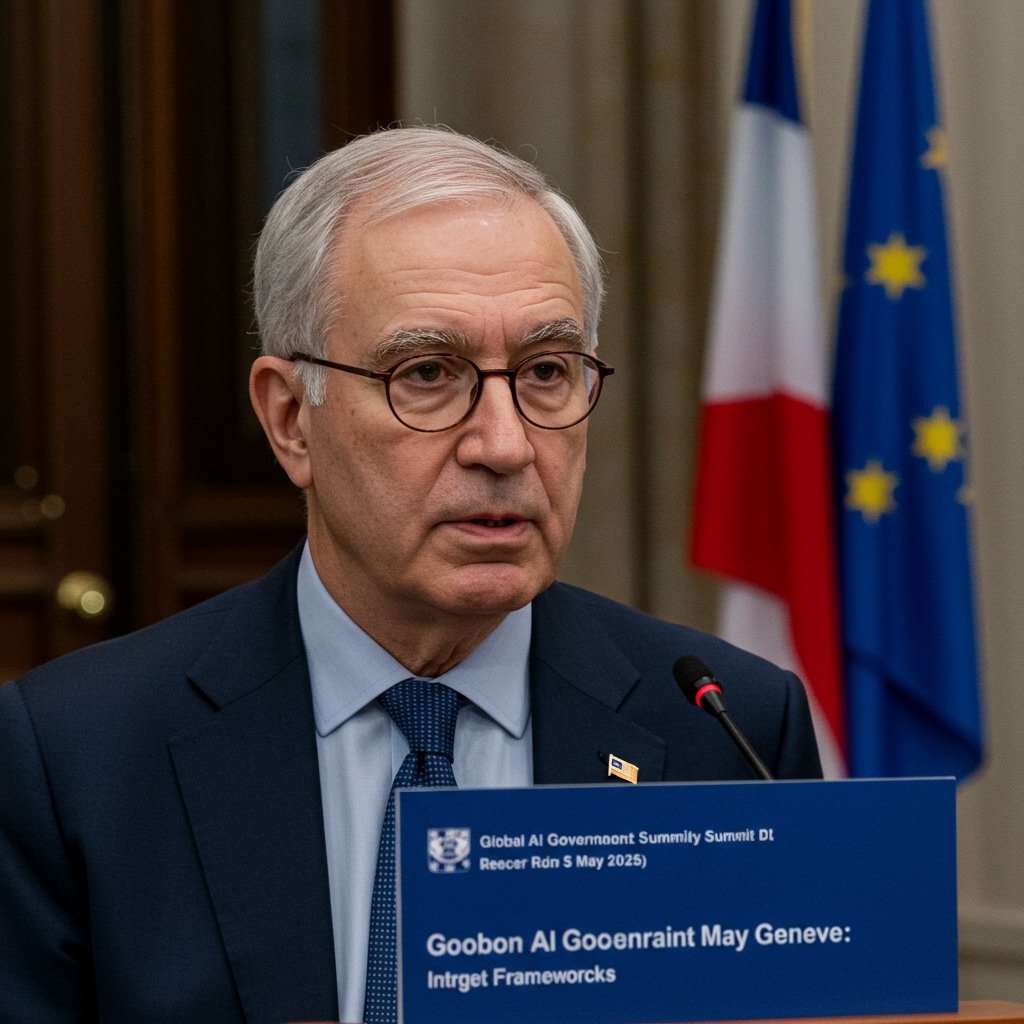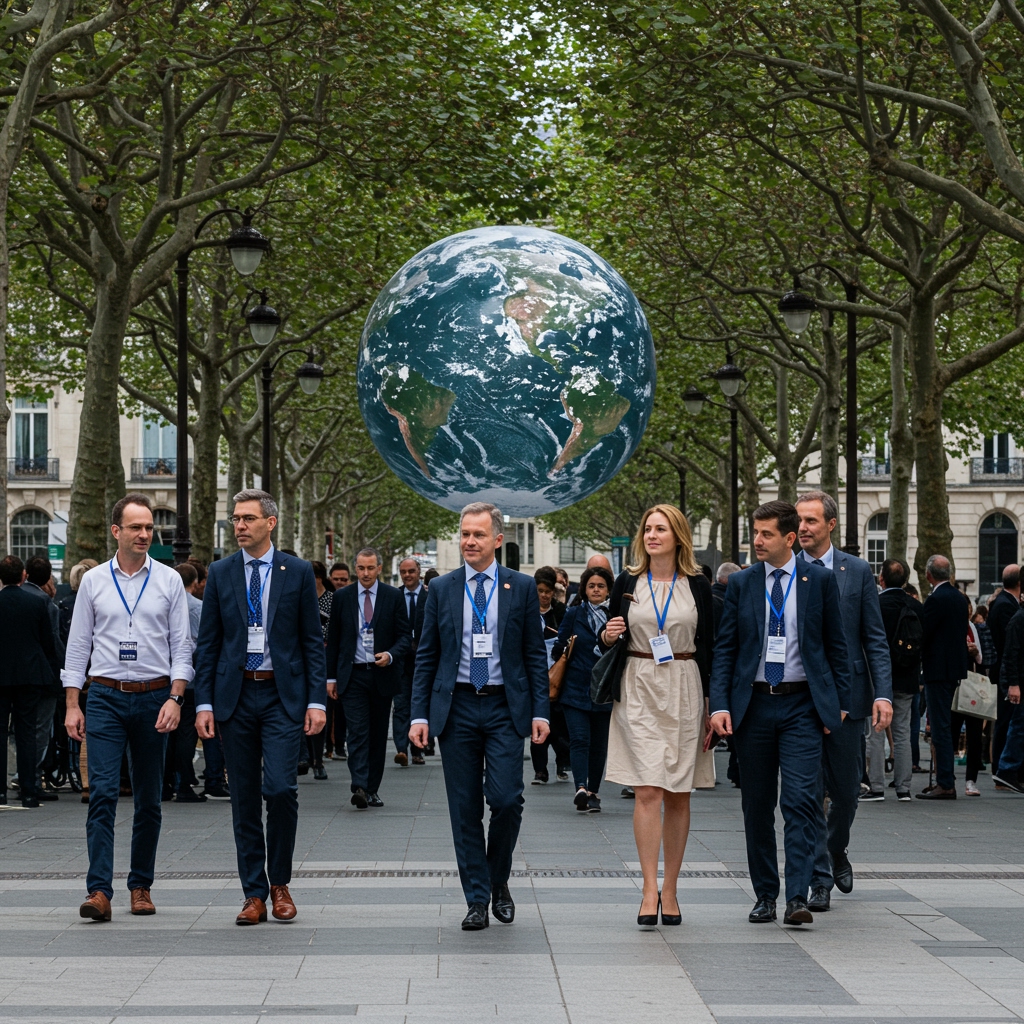International Community Addresses AI Future: Geneva Summit Confirmed for May 2025
In a significant diplomatic move signaling growing global urgency, representatives from over 50 nations are poised to convene in Geneva from May 15-17, 2025, for a high-level international summit focused on establishing preliminary guidelines for Artificial Intelligence (AI) development and deployment. Diplomatic sources have confirmed the gathering, underscoring the international community’s commitment to collaboratively navigating the complex landscape of AI governance.
The confirmed participant list highlights the criticality of the event, including major technological and economic powers such as the United States, China, and the European Union, alongside dozens of other countries representing diverse perspectives and levels of AI advancement. This broad participation is seen as crucial for forging any meaningful international consensus on technologies that are rapidly reshaping societies, economies, and global power dynamics.
Summit Objectives and Expected Agenda
The primary objective of the Geneva summit is to initiate a multilateral process for developing foundational international norms and frameworks for AI. Unlike previous, smaller forums or discussions centered on specific AI applications, this summit aims for a more holistic approach, seeking to address the cross-cutting challenges and opportunities presented by AI at a global scale.
The anticipated agenda is comprehensive, reflecting the multifaceted nature of AI’s impact. Key topics expected to dominate discussions range from the highly sensitive issue of autonomous weapons regulation – often referred to as Lethal Autonomous Weapons Systems (LAWS) – to critical areas concerning individual rights and digital sovereignty, such as data privacy. Furthermore, delegates are slated to deliberate on frameworks for ethical AI, aiming to instill principles of fairness, accountability, transparency, and human-centricity into the design and deployment of AI systems worldwide.
The inclusion of topics spanning military applications, civil liberties, and ethical considerations underscores the breadth of concerns that the international community believes require urgent attention. Regulating autonomous weapons touches upon fundamental questions of human control over the use of force, while data privacy and ethical AI frameworks are essential for building public trust and ensuring that AI development benefits humanity as a whole, rather than exacerbating inequalities or infringing upon fundamental rights.
Context: Rising Calls for Global AI Action
The impetus for this high-level gathering in Geneva follows growing and persistent calls from various international actors for urgent multilateral action. Notably, the UN Secretary-General has repeatedly highlighted the need for a global approach to AI governance, warning of the potential risks posed by unregulated AI development, including exacerbating global inequalities, fueling misinformation, and contributing to instability. His calls have been echoed by numerous NGOs and civil society organizations worldwide, which have been vocal advocates for human rights-based approaches to AI and for ensuring that AI serves the public good.
These voices have emphasized that the rapid pace of AI advancements outstrips existing national regulatory frameworks and international agreements, creating a governance vacuum that must be filled through concerted global efforts. The summit is seen as a direct response to this pressure, representing a critical step towards translating these calls into concrete diplomatic action.
Key Discussions: Oversight and Transparency
Central to the anticipated discussions are two particularly challenging, yet vital, concepts: the feasibility of a global oversight body for AI and the establishment of standards for transparency in AI systems. The notion of a global oversight body raises complex questions regarding its mandate, authority, funding, and relationship with national governments and existing international organizations. Delegates will likely explore different models, ranging from a purely advisory role to potentially more robust mechanisms for monitoring and coordination.
Establishing international standards for AI transparency is equally, if not more, challenging. Transparency in AI can mean many things, from understanding the data used to train models and the logic behind their decisions (‘explainability’) to disclosing when interactions are with an AI rather than a human. Finding common ground among nations with differing legal traditions, technological capacities, and strategic interests on what constitutes necessary and feasible transparency will be a key test for the summit participants. These discussions reflect a global recognition that opaque or poorly understood AI systems pose risks, from bias and discrimination to unpredictable behavior and accountability gaps.
Challenges and the Path Forward
While the convening of such a high-level summit is a positive development, significant challenges lie ahead. The diverse national interests, economic strategies tied to AI leadership, differing values, and varying levels of technological development among participating nations present substantial hurdles to achieving consensus. Geopolitical tensions, particularly between major tech powers, could also complicate negotiations.
Nevertheless, the fact that over 50 nations, including key players, are agreeing to come together in Geneva in May 2025 signifies a collective acknowledgment that AI governance is too critical and complex for any single nation to handle alone. The summit is likely to be the beginning of a longer process, potentially leading to further meetings, working groups, or eventually, binding international agreements or a dedicated international body. The initial focus on preliminary guidelines suggests a pragmatic approach, aiming to build foundational principles upon which more detailed frameworks can be developed over time.
Experts observe that success will hinge on the willingness of participating nations to prioritize long-term global stability and shared prosperity over short-term national advantage. The outcomes of the May 15-17, 2025, summit in Geneva will be closely watched as an indicator of the international community’s capacity to collectively manage the transformative power of Artificial Intelligence for the benefit of all.





